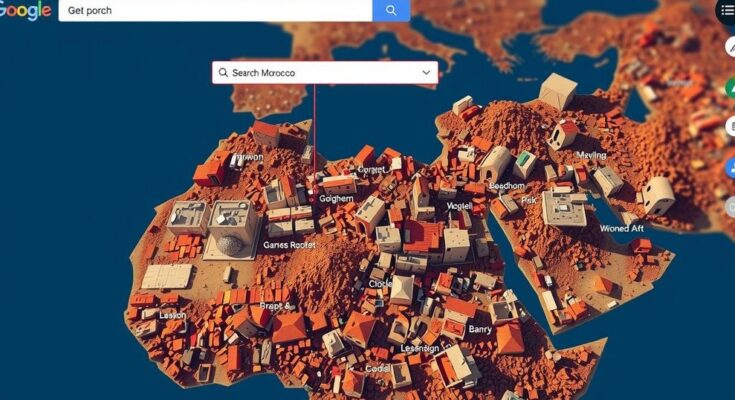Following the September 2023 earthquake in Morocco, Ecosia pledged profits to the High Atlas Foundation, resulting in the planting of 80,000 trees, repair of irrigation systems, and installation of solar panels, significantly aiding local recovery efforts in the devastated High Atlas region.
In September 2023, a catastrophic earthquake struck Morocco, severely affecting the High Atlas region, where local farms and livelihoods were devastated. In response to this tragedy, the search engine Ecosia pledged to donate its profits from a specific day last year to the High Atlas Foundation, with the intention of aiding in the restoration of the area’s infrastructure and the planting of 200,000 trees as soon as conditions permitted. One year later, the collaborative efforts of Ecosia and the High Atlas Foundation (HAF) have resulted in the planting of 80,000 trees, the repair of numerous irrigation systems, and the installation of 60 solar panels in local villages. Yossef Ben-Meir, president of the High Atlas Foundation, noted that approximately 50,000 families in the region were adversely affected by the earthquake. Many residents experienced the loss of their homes, and numerous families are still struggling to find adequate shelter. “A village of 300 people lost half its people,” stated Ben-Meir, emphasizing the extent of damage in the area. Ecosia’s chief tree-planting officer, Pieter van Midwoud, remarked that the decision to dedicate a day’s profits to assist the region was an obvious choice. “We are involved with close to 6,000 farmers in Morocco, and many of the people we know live in those villages,” he stated. van Midwoud elaborated on Ecosia’s longstanding involvement with the High Atlas Foundation, having worked collaboratively for eight years, establishing eight nurseries that supply seedlings to farmers and cooperatives. The cultivation of trees, including carob, olive, and various nut trees, is crucial for farmers in the High Atlas region, as these trees contribute to agricultural sustainability and enhance resilience against erosion and climate change. Following the earthquake, Ecosia proposed to assist the most affected villages in restoring their infrastructure, including terracing and solar panels. Ben-Meir emphasized the importance of restoring water systems to help communities regain stability. “We are a community development organization,” he explained, noting the transition of some communities from barley and corn crops towards tree planting. He also pointed out the compounded challenges from a six-year drought in the region that has hindered local communities and rewilding initiatives. “Our work is about how we can create more self-generating revenue sources to feed back into other projects,” he added, highlighting the potential for tree planting to provide families with income and support broader human development goals. Furthermore, van Midwoud indicated that the nurseries in the High Atlas mountains, supported by Ecosia, produce the trees that farmers genuinely desire. He concluded, “We have basically created tree planting machines in the High Atlas mountain region, which is a great legacy to leave.”
In September 2023, Morocco suffered a devastating earthquake that primarily impacted the High Atlas region, home to numerous communities reliant on agriculture for their livelihoods. The destruction of farms and homes necessitated immediate support for recovery efforts. Recognizing the urgent need for aid, the search engine Ecosia pledged to donate profits to the High Atlas Foundation to foster long-term recovery, including irrigation improvements and extensive tree planting. This collaboration illustrates the critical intersection of technology, community development, and environmental sustainability in disaster recovery.
The collaborative efforts between Ecosia and the High Atlas Foundation serve as a testament to effective disaster recovery and community resilience. By prioritizing tree planting and infrastructure restoration, they are not only addressing the immediate aftermath of the earthquake but also fostering sustainable agricultural practices that will benefit local farmers in the long term. The initiative showcases how technology can play a significant role in supporting communities in distress, creating a legacy of self-sufficiency and environmental stewardship.
Original Source: www.forbes.com




